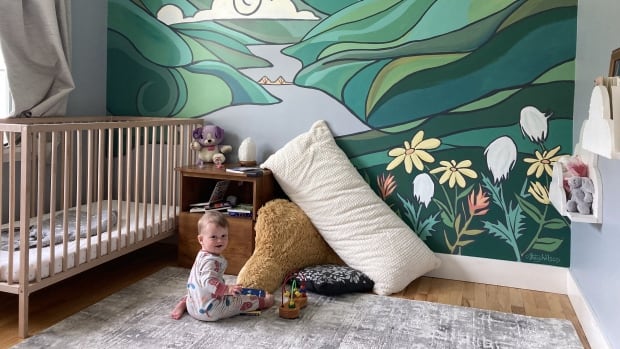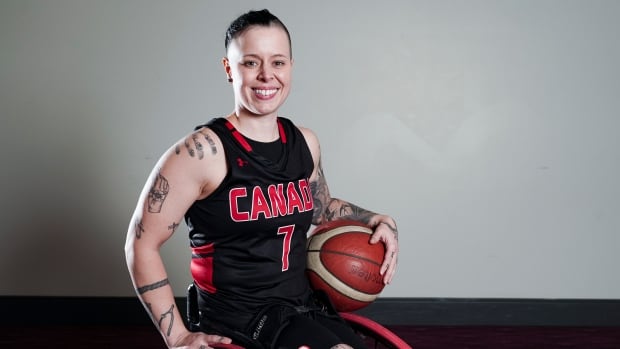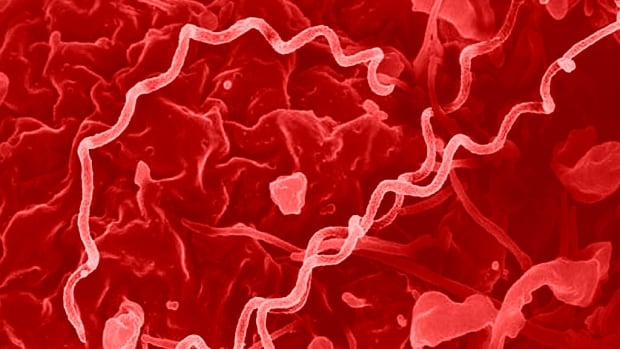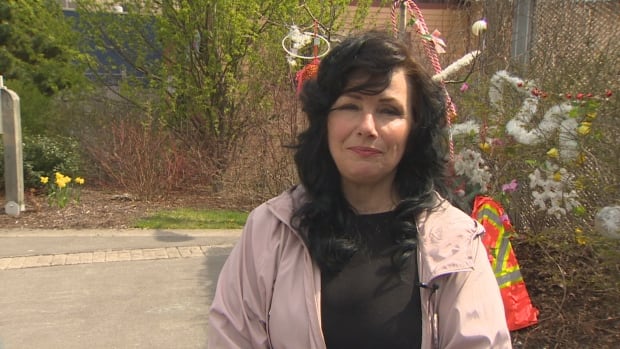This First Person column is the experience of Abby Wilson, who lives in Nelson, B.C. For more information about CBC’s First Person stories, please see the FAQ.
My daughter climbed out of her crib one afternoon instead of going down for her nap.
As my husband and I dismantled the crib into panels, memories flooded back of putting it together while pregnant at the height of the pandemic. Assembling the crib had felt like a team-building challenge for our parenting journey ahead. It was a puzzle and we solved it easily.
But since becoming a mother in 2021, I’ve felt like I’m assembling a much bigger puzzle where the pieces keep shifting shape, the teamwork is harder and the final picture is unclear.
Early on, I thought that if I could fit the “full-time job” piece into the “full-time child care” piece, the “life after maternity leave” puzzle would start to take shape. It was a huge relief in 2022 when we were accepted into a daycare centre just weeks before I was due back at my work in IT support. The monthly cost of daycare was nearly the cost of our mortgage; and as much as it was a huge relief, it was also a huge squeeze.

Then some new puzzle pieces came along.
My toddler started getting sick. Her new immune system was being introduced to daycare just as pandemic restrictions were lifting and a backlog of illnesses was recirculating. We tried to take turns staying home with her but my husband had less flexibility.
So my daughter got sick, and I missed work. Then I got sick, and I missed work. Then she got sick again with something new.
I asked to work part-time. The answer was no
So much of my motherhood puzzle involved the crib.
There were late nights at the crib, trying to help my daughter back to sleep, trying to assess her symptoms. Was it a fever? Just a bad cough keeping her up? We didn’t have a family doctor and the local walk-in clinic could never see patients right away. Was this bad enough for the emergency room? There were two memorable weeks with a norovirus infection, where, night after night, I scrubbed the crib down.
I began taking vacation days from my employer in order to care for my sick daughter, all while paying for daycare. I asked to work part-time. The answer was no.
After six months of being back at work, I left my career of 10 years.
I dismantled the puzzle, gathered the new pieces and started on another. Our cost for child care dropped as our daycare became a $10-per-day site. Meanwhile, I started developing my own art business while working on-call at the library.
Then, within a week of dismantling the crib, we learned that our daughter would be losing her daycare spot, along with all the other soon-to-be three-year-olds because of the centre’s aging out policy. I frantically worked my spreadsheet of child-care centres in the small B.C. city where we live. Every one was full and most had even closed their waitlists.
Just as the now-empty crib had started conversations about making space for a second child, things were falling apart with our first. I took the puzzle apart again.

Motherhood isn’t what I expected. I’m grateful, I’m discouraged, I’m angry and I’m lost. Most of the time I’m just tired.
Sometimes people tell me things like, “Being a mom is the most important job in the world,” or “These early years go so fast so enjoy every minute.” Even, “You chose to have children — you should be grateful to care for them.”
But the truth is that I can’t separate my feelings from my experience navigating the world as a new mom.
CBC News Network host John Northcott speaks with Freelance Journalist Jen Gerson and Artist and Scholar, Syrus Marcus Ware about whether it’s time to normalize bringing kids to work or whether parenting and productivity are mutually exclusive.
My motherhood was shaped at first by the loneliness of the pandemic, and then by the threefold challenges of not enough health care, not enough child care and not enough workplace accommodation.
Do I have enough child care to work? Am I working enough to afford child care? And does it even matter what I really want for myself? The lack of options amidst all the uncertainty has been keeping me up at night, even while my daughter sleeps soundly in her new bed.
When I look at my daughter’s empty crib, I don’t know if I can pick up the pieces of another puzzle and start again with a second child. Though the crib gives me somewhere for a child to sleep at night, it doesn’t help solve the puzzle of the days.
But the crib is still in our basement. I can’t quite let it go yet.
Do you have a compelling personal story that can bring understanding or help others? We want to hear from you. Here’s more info on how to pitch to us.








